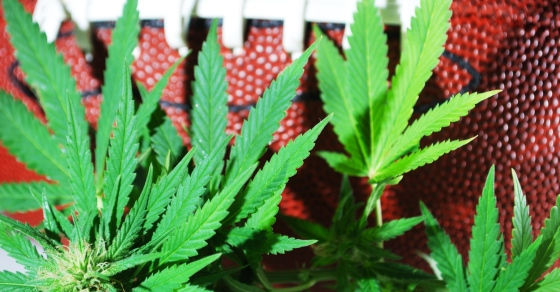Ex-NFL players Decrim. Lawsuit Delivered Low Blow by 2nd Cir. Court
- GI Mary Jane

- Jan 4, 2020
- 3 min read
Sam Reisman reports from Law360

"The Second Circuit on Friday told several medical marijuana patients including a former NFL star that it will not give them more time to ask federal regulators to de-schedule the drug, potentially imperiling their entire case.
In an unsigned summary order Friday, a three-judge panel rejected the argument, advanced by retired footballer Marvin Washington and other cannabis patients, that they need 18 additional months to petition the U.S. Drug Enforcement Administration, on top of the six the court gave them last year.
“Unless the Plaintiffs seek agency review and so inform us within six months, we will affirm the District Court’s judgment dismissing this case,” a split circuit panel wrote in May.
The original deadline passed in November, and it was not immediately clear what Friday's order signals for the medical marijuana patients’ case.
The patients claimed they needed the extra time to file a separate action securing a declaratory judgment that the DEA even has the authority to grant the relief they sought: the declassification of marijuana as a Schedule I drug.
They originally filed their suit in 2017, arguing that their use of medical cannabis puts them at risk of criminal charges and limits their ability to travel. They claimed pot's illegal status violates their rights to due process, free speech and equal protection under the U.S. Constitution. The district court dismissed the case in February 2018.
A circuit panel in May held onto the case without ruling on it and instructed the patients to petition the DEA within six months to request a re-designation of marijuana. The split panel said they had not exhausted their administrative options before bringing their action.
The 2-1 decision was notable because it acknowledged the medical benefits of cannabis and the risk of prosecution the patients faced, with reform advocates hailing it as a turning point in the fight to decriminalize marijuana.
While the circuit court retained jurisdiction, it did so solely so it could take action if the DEA was not prompt in the processing of the patients’ request.
At the time, Michael Hiller, an attorney for the patients, said he planned to petition the agency within 30 to 60 days. But a closer look at the DEA's previous position on the matter forced his clients to request an extension and rethink their strategy, Hiller told Law360 in December.
"We filed the motion to extend because, had we not done so — had we simply filed a de-scheduling petition — the overwhelming likelihood would have been that cannabis would have been reclassified under Schedule II, which would have been a disaster, not only for our clients, but for medical cannabis patients and cannabis businesses nationwide,” he said.
According to the patients, the DEA had consistently claimed that it only has authority to move cannabis from Schedule I to Schedule II — an outcome they said would be worse for them than the status quo. They argued that Schedule II status would impose on medical cannabis a host of federal regulations stricter than what is currently in place in the states where it is legal, and could put life-saving medication out of reach or make it prohibitively expensive.
"Respectfully, we would sooner accept the court's dismissal of this case and resign our clients to an existence that requires them to relinquish their other constitutional rights rather than risk substantial and potentially irreversible damage to their lives and health," the patients said in a Dec. 12 reply brief.
Hiller did not immediately respond to a request for comment Friday.
In its own brief asking the court to deny the deadline extension, the government argued the patients had altered the main legal claim underpinning their action when they asserted that Schedule II status for marijuana would be as bad or worse for them than Schedule I.
"They would prefer to have no federal control over marijuana at all," the government wrote in its Dec. 9 opposition brief. "But numerous common prescription drugs — that is, drugs with accepted medical uses — are listed on Schedules II through V, and plaintiffs offer no reason marijuana should be treated any differently."
A spokesperson for the U.S. Department of Justice declined to comment.
The patients are represented by Michael Hiller of Hiller PC.
The government is represented by Samuel Dolinger and Benjamin H. Torrance of the U.S. Attorney's Office for the Southern District of New York.
The case is Washington et al. v. Barr et al., case number 18-859, in the U.S. Court of Appeals for the Second Circuit."
.png)







Comments